Affiliate Faculty
| Name | Contact Information |
|---|---|
|
Christina Alba
Ph.D. • Associate Research Scientist
Denver Botanic Gardens
|
720.865.3561 |
|
Bridget Chalifour
Ph.D. • Genomics Scientist
Denver Museum of Nature and Science
| |
|
Paula Cushing
Ph.D. • Senior Curator of Invertebrate Zoology
Denver Museum of Nature and Science
|
303.370.6442 |
|
April Goebl
Ph.D. • Assistant Research Scientist
Denver Botanic Gardens
| |
|
Rebecca Hufft
Ph.D. • Associate Director of Applied Conservation
Denver Botanic Gardens
|
720.865.3597 |
|
Jennifer Ramp Neale
Ph.D. • Director of Research & Conservation
Denver Botanic Gardens
|
720.865.3562 |
|
Garth Spellman
Ph.D. • Director of Zoology & Health Sciences, Curator of Ornithology
Denver Museum of Nature and Science
|
303.370.6469 |
|
Andrew Wilson
Ph.D. • Associate Curator of Mycology
Denver Botanic Gardens
|
720.865.3662 |
Biology Department Research Faculty
| Photo | Name | Contact Information |
|---|---|---|
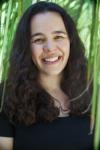 |
Sara Branco
PhD • Associate Professor • Biology Research Faculty
Department of Integrative Biology
| |
 |
Leo P. Bruederle
Ph.D. • Professor • Emeritus
Department of Integrative Biology
| |
 |
Michael J. Greene
Ph.D. • Professor • Biology Research Faculty
Department of Integrative Biology
|
EMAIL IS PREFERRED MEANS OF CONTACT |
 |
Laurel Hartley
Ph.D. • Professor • Biology Research Faculty
Department of Integrative Biology
|
EMAIL IS PREFERRED MEANS OF CONTACT |
 |
Carlos Infante
Ph.D. • Assistant Professor • Biology Research Faculty
Department of Integrative Biology
|
EMAIL IS THE PREFERRED MEANS OF CONTACT |
 |
Christopher S. Miller
Ph.D. • Associate Professor • Biology Research Faculty
Department of Integrative Biology
|
(720) 577-5430 |
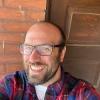 |
Michael Moore
PhD • Assistant Professor • Biology Research Faculty
Department of Integrative Biology
|
EMAIL IS PREFERRED MEANS OF COMMUNICATION |
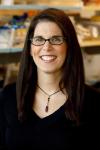 |
Annika C. Mosier
Ph.D. • Associate Professor • Biology Research Faculty
Department of Integrative Biology
|
EMAIL IS PREFERRED MEANS OF CONTACT |
 |
Christopher J. Phiel
Ph.D. • Department Chair • Associate Professor • Biology Research Faculty
Department of Integrative Biology
|
303.315.7678 |
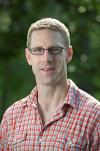 |
Greg Ragland
Ph.D. • Associate Professor • Biology Research Faculty
Department of Integrative Biology
|
EMAIL IS PREFERRED MEANS OF CONTACT |
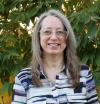 |
Timberley Roane
Ph.D. • Associate Professor • Director of ESIL Certificate • Biology Research Faculty
Department of Integrative Biology
|
303.315.7654 |
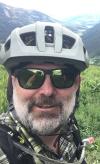 |
John Swallow
Ph.D. • Professor • Biology Research Faculty
Department of Integrative Biology
|
303.315.7610 |
 |
Diana F. Tomback
Ph.D. • Professor • Biology Research Faculty
Department of Integrative Biology
| |
 |
Alan Vajda
Ph.D. • Professor • Biology Research Faculty
Department of Integrative Biology
|
EMAIL IS THE PREFERRED MEANS OF CONTACT |
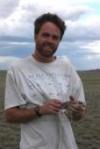 |
Mike Wunder
Ph.D. • Professor • Director of Graduate Program • Biology Research Faculty
Department of Integrative Biology
|
303.315.7661 |
Associate Faculty
| Photo | Name | Contact Information |
|---|---|---|
 |
John Fisk
Ph.D. • Associate Professor
Department of Chemistry
|
303-315-7663 |
 |
Benjamin Greenwood
Ph.D. • Assistant Professor
Department of Psychology
|
303.556.5899 |
 |
Jefferson Knight
Ph.D. • Professor
Department of Chemistry
|
303-315-7639 |
 |
Jung-Jae Lee
Ph.D. • Associate Professor
Department of Chemistry
|
303-315-7671 |
 |
Woonghee Lee
Ph.D. • Assistant Professor
Department of Chemistry
|
303-315-7672 |
 |
Hai Lin
Ph.D. • Chemistry Department Chair • Professor
Department of Chemistry
|
303-315-7656 |
 |
Scott Reed
Ph.D. • Professor
Department of Chemistry
|
Senior Instructor
| Photo | Name | Contact Information |
|---|---|---|
 |
Hannah C. Anchordoquy
Ph.D. • Senior Instructor
Department of Integrative Biology
|
EMAIL IS PREFERRED MEANS OF CONTACT |
 |
Laurel A. Beck
Ph.D. • Senior Instructor
Department of Integrative Biology
|
EMAIL IS PREFERRED MEANS OF CONTACT |
 |
Lisa Johansen
Ph.D. • Senior Instructor • Undergraduate Internship Coordinator
Department of Integrative Biology
|
303-315-7616 |
|
Erin Kelso
Ph.D. • Senior Instructor
Department of Integrative Biology
|
303-315-7666 | |
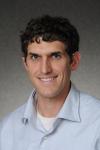 |
David G. Knochel
Ph.D. • Senior Instructor
Department of Integrative Biology
|
EMAIL IS THE PREFERRED MEANS OF CONTACT |
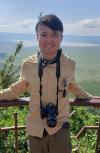 |
Paul Le
Ph.D. • Senior Instructor
Department of Integrative Biology
|
EMAIL IS PREFERRED MEANS OF CONTACT |
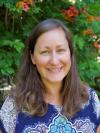 |
Kim Regier
Ed.D. • Senior Instructor • Director of Undergraduate Studies
Department of Integrative Biology
|
EMAIL IS PREFERRED MEANS OF CONTACT |
